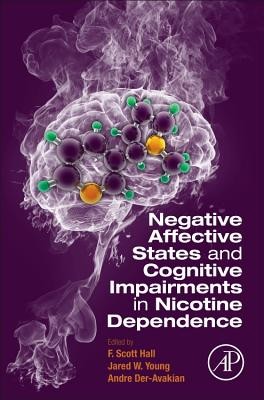
- We will send in 10–14 business days.
- Publisher: Academic Press
- ISBN-10: 0128025743
- ISBN-13: 9780128025741
- Format: 15.5 x 23.1 x 2.3 cm, hardcover
- Language: English
- SAVE -10% with code: EXTRA
Negative Affective States and Cognitive Impairments in Nicotine Dependence (e-book) (used book) | bookbook.eu
Reviews
Description
Negative Affective States and Cognitive Impairments in Nicotine Dependence is the only book of its kind that addresses nicotine use and abuse in the context of negative reinforcement mechanisms. Written and edited by leading investigators in addiction, affective, genetic, and cognitive research, it provides researchers and advanced students with an overview of the clinical bases of these effects, allowing them to fully understand the various underlying dysfunctions that drive nicotine use in different individuals. In addition, this book examines animal models that researchers have utilized to investigate the biological bases of these dysfunctions.
The combination of clinical and preclinical approaches to understanding nicotine dependence makes this book an invaluable resource for researchers and practitioners seeking to develop targeted treatments aimed at ameliorating symptoms of nicotine dependence, as well as identifying premorbid differences in affective or cognitive function.
EXTRA 10 % discount with code: EXTRA
The promotion ends in 17d.05:39:12
The discount code is valid when purchasing from 10 €. Discounts do not stack.
- Publisher: Academic Press
- ISBN-10: 0128025743
- ISBN-13: 9780128025741
- Format: 15.5 x 23.1 x 2.3 cm, hardcover
- Language: English English
Negative Affective States and Cognitive Impairments in Nicotine Dependence is the only book of its kind that addresses nicotine use and abuse in the context of negative reinforcement mechanisms. Written and edited by leading investigators in addiction, affective, genetic, and cognitive research, it provides researchers and advanced students with an overview of the clinical bases of these effects, allowing them to fully understand the various underlying dysfunctions that drive nicotine use in different individuals. In addition, this book examines animal models that researchers have utilized to investigate the biological bases of these dysfunctions.
The combination of clinical and preclinical approaches to understanding nicotine dependence makes this book an invaluable resource for researchers and practitioners seeking to develop targeted treatments aimed at ameliorating symptoms of nicotine dependence, as well as identifying premorbid differences in affective or cognitive function.


Reviews